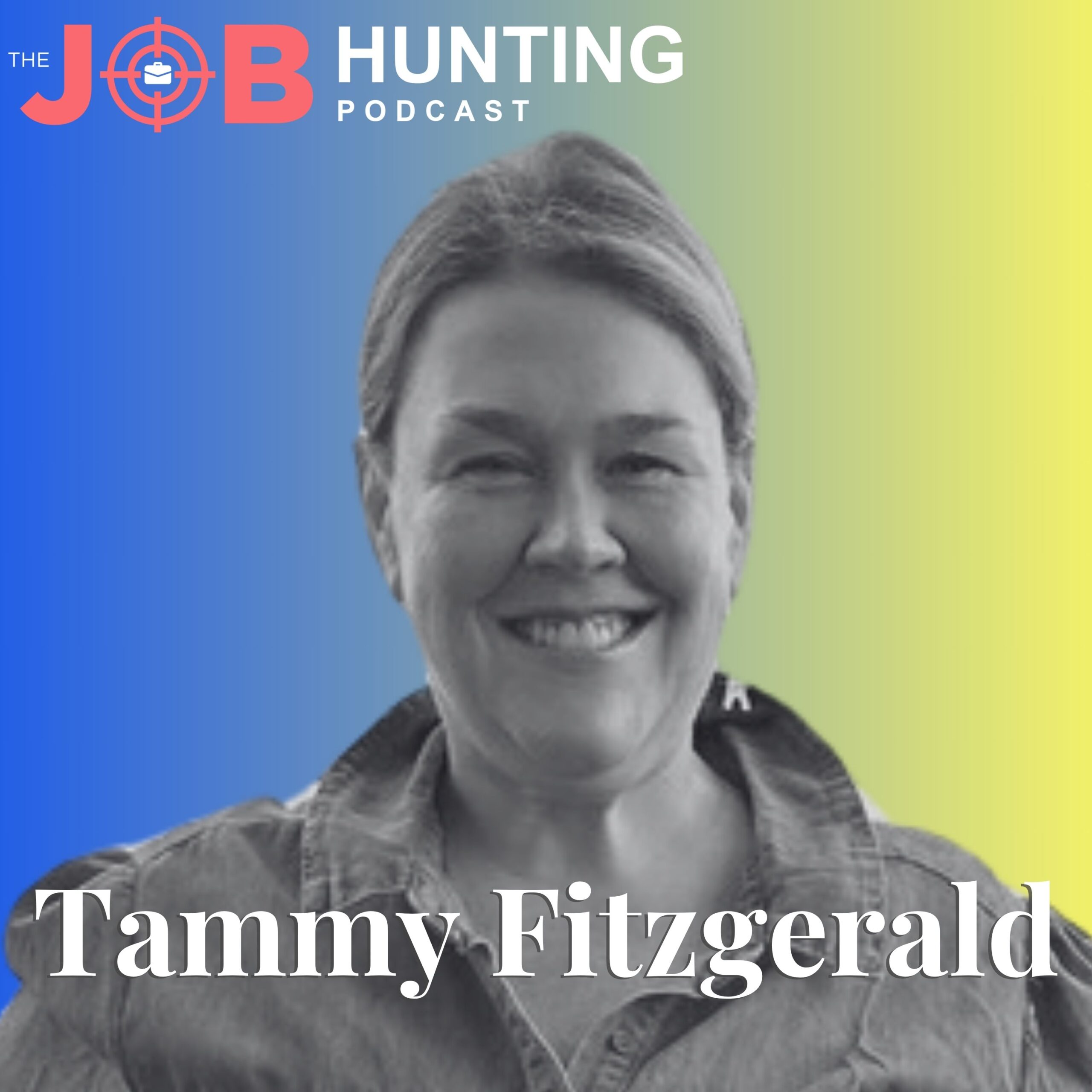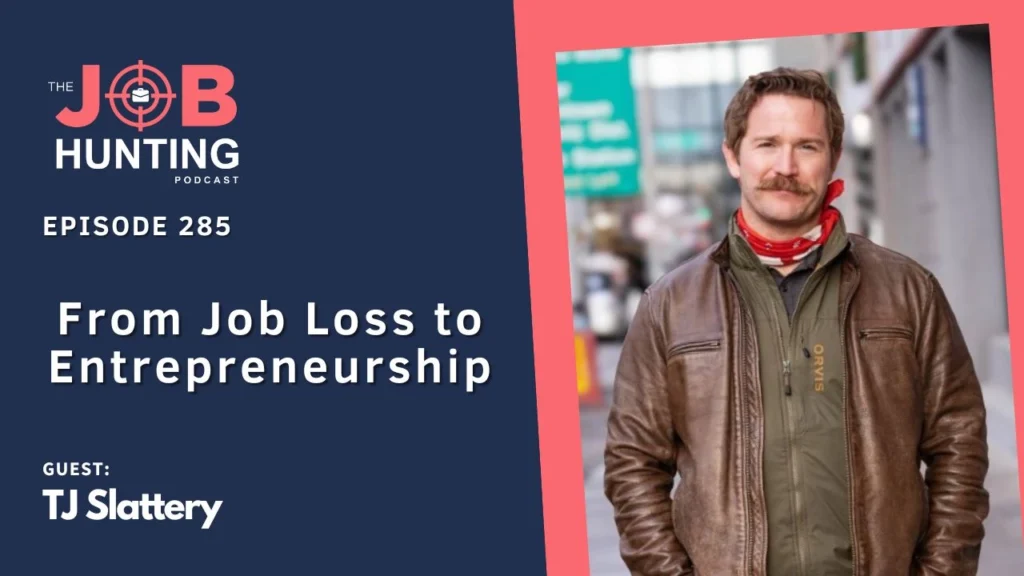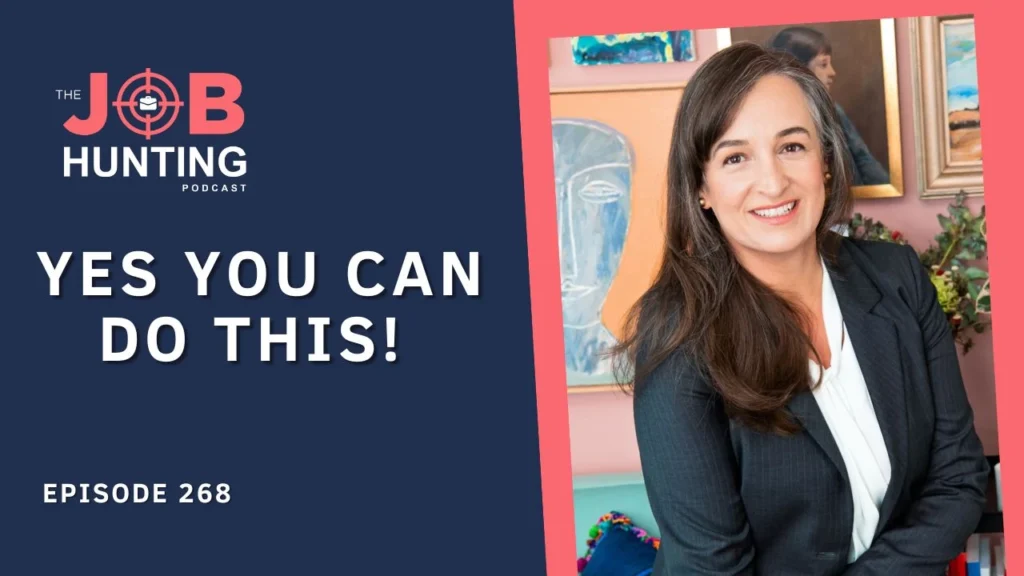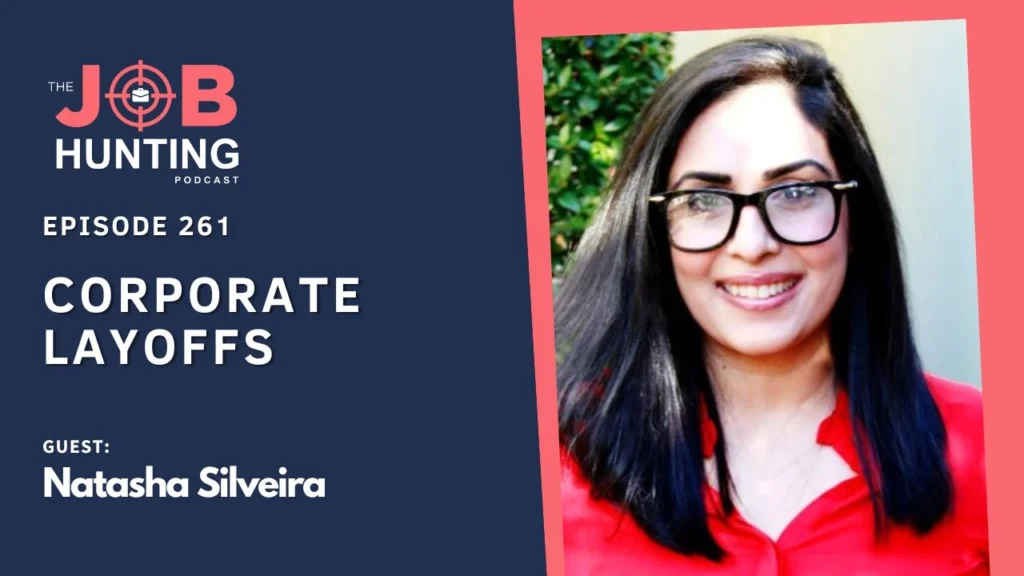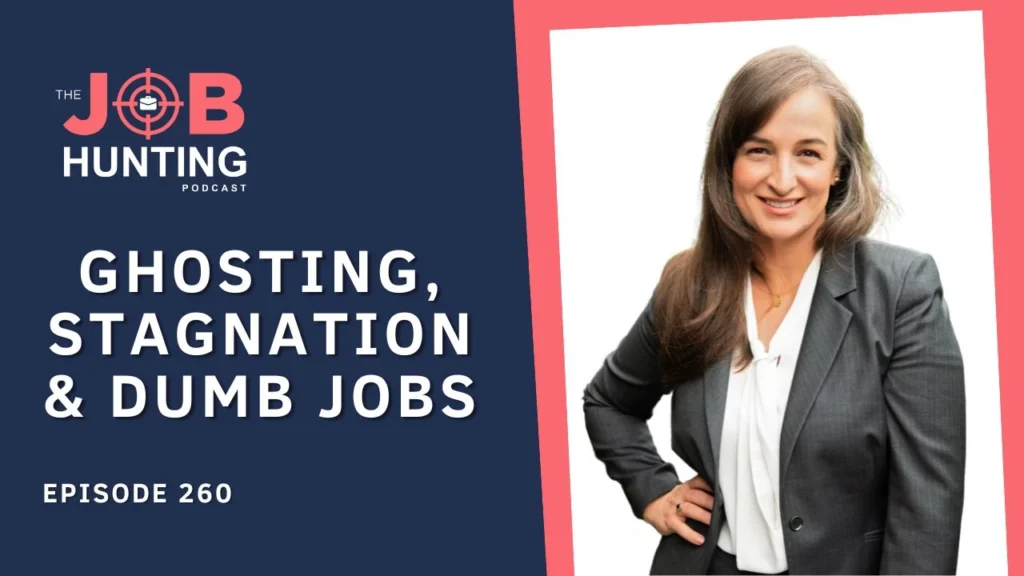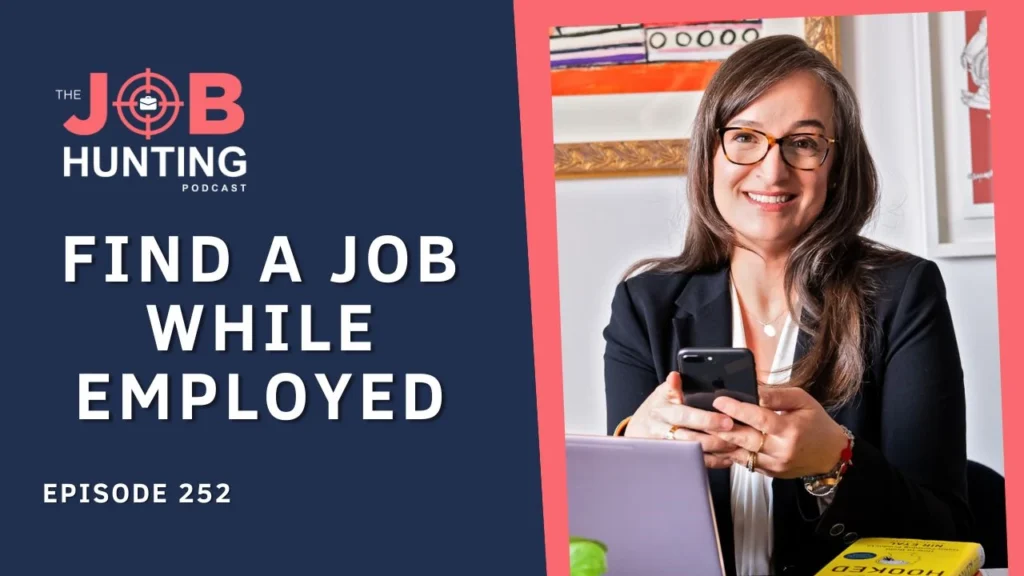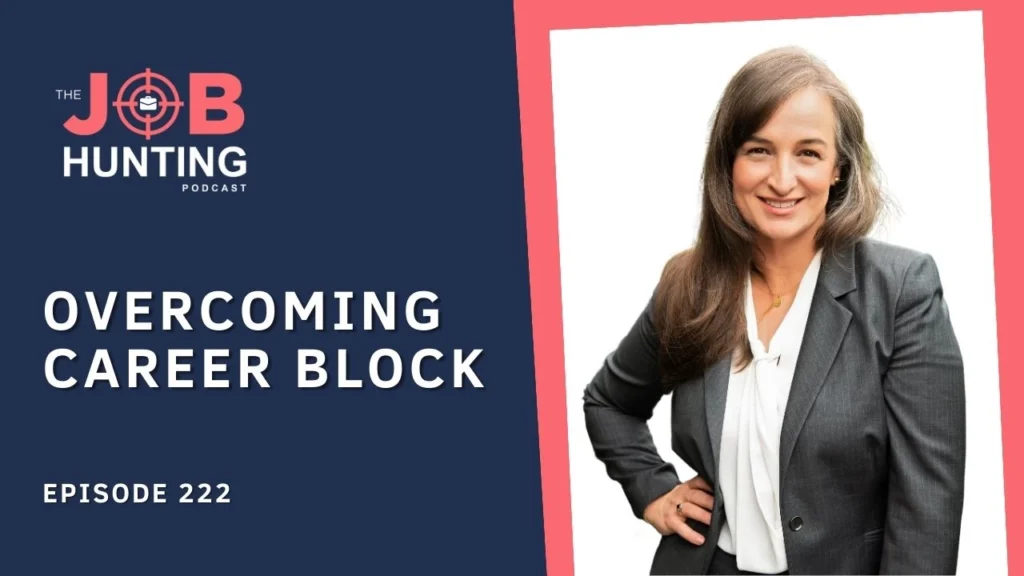Renata: I have been following you for years, watching you transform your life, change jobs, change cities. You’ve been in and out of Melbourne, moved to the country. Everything you’ve done has made me quite jealous because I’ve always wanted to move to a small town. Then you’re back in Melbourne, and I really wanted to catch up with you here on the podcast.
When we started having our conversation on the phone, I think I was a bit rude and interrupted it. It was only because I wanted to have the chat, you know.
Tammy: You weren’t rude.
Renata: Thank you. But it was really when you decided to go back to study that I said, that’s it. I need to talk to Tammy. It’s been too long. I’ve been watching her, and I’ve always thought you would be a great guest, but now it’s just perfection. Not many people have the courage to do what you have just done, which is leave a very successful career that you worked hard to achieve, going from management roles to director roles, working for very interesting areas of government and higher education. You’ve been in the not-for-profit sector as a board member and chair, and now you’re back at uni.
Tammy: Mm.
Renata: Please, please do tell. How did that happen?
Tammy: Well, I had long wanted, when I was—if you had met me at 20 or even 15, I would have said to you, you know, in the top three things I wanted to do, I wanted to be a lawyer. But I needed to work as soon as I finished school. I worked at Telecom, as it was back then, now Telstra, and I quickly ended up in management roles and earning a living. I came from not earning very much, like having a very low socioeconomic childhood, so all of a sudden I had access to money. Then, before I knew it, I had children, and it became very difficult to carve out time to go and study while you had the demands of raising and funding a family.
It was a bit of a perfect storm and a very fortunate perfect storm. I had applied a couple of times over the last 20 years to get into law and had been offered a place, but was not able to go and do it. A couple of things happened at the same time. One, I got to the point where I really just didn’t want to keep doing what I was doing in senior leadership roles, at that time in government. Also, we’re very lucky that my husband’s family are able to provide us a bit of support and buy me some time. Because we’ve still got young children and, like everybody, bills and the cost of living are going up, not down, it made it financially possible. I was also at a point where I was desperately keen to reimagine the next 30 years of my career. As you mentioned or alluded to earlier, I’ve had a health transformation—I’ve lost 60 kilos. I don’t think if I were carrying that 60 kilos now, I’d have the energy to change careers.
So a few things happened. We had the financial support to be able to do it. I’m healthier than I’ve ever been, and I had a gut full of what I was doing.
Renata: Yeah. Do you think you burned out from your leadership roles?
Tammy: Yeah, I am. Actually, we’ve been talking about this week with my friends and at home, and I watched the Celine Dion documentary earlier in the week, which was fascinating. She’s an amazing woman, but she obviously worked at an incredible pace for a very long time and now has a neurological disorder, which is horrific.
I’m 49, I’ve gone into perimenopause, I’ve got an 8-year-old and a 15-year-old, and I’ve had paid employment since I was 14. This is the first time in 35 years I’ve not had an income. I’ve run hard for those 35 years, and I got to a point where I just didn’t want to keep running in that direction. I wanted to reimagine what the next 25, 30 years of working looks like. I’m not someone who ever wants to retire. I just want to do work that I think is valuable and that energizes me. So yeah, I think there’s absolutely an aspect of burnout there. People say to me, because I’ve not been working for about five weeks, aren’t you bored? And I’m like, “Oh, I could make mushroom soup and go for a walk for the next 30 years without feeling bored at all.” So yeah, I think there’s a burnout factor for sure.
Renata: Yeah. And the other thing that I think about a lot is the fact that, um, I always perceived you as being very good at what you did. Right? Like I looked up to you, and I thought you were the business. We didn’t have a lot of interaction; we were sort of colleagues and had some meetings together, but you had a reputation.
And I think you know that, right? For being good at what you do—a good manager, a good team leader, good at delivering results for your team. Definitely very good at managing the politics of work. And I say all of this because I want the listeners to notice that you don’t need to think about changing careers because you’re not doing well.
Sometimes you’re perfectly wonderful at your job but not happy.
Tammy: Yeah, absolutely. And, you know, my last employer was delivering government services. They didn’t want me to leave, and the one before that didn’t want me to leave. So I’ve left voluntarily. But yeah, I wasn’t happy. That’s the crux of it. I wasn’t happy. I think I have had the privilege of working with fabulous people.
I’ve had incredible staff that have reported to me, and I’ve had the luxury of not just working with them but supporting, coaching, and mentoring them, and throwing ideas around. I’ve had some terrific bosses who have mentored me. Overall, I’ve worked with amazing people, but I’ve also had some shocking leaders I’ve worked with over the last 15, 20 years—people with minimal capability, low emotional intelligence, who treat people like rubbish.
You get to a point in life where, at 49, you realize there are probably fewer years ahead than behind. And yes, there’s a financial imperative to earn a living, but your ability to tolerate difficult people really reduces. I’m at that point where, you know, I’ll do anything to feed my kids if I have to, but I have very limited ability to tolerate difficult people.
Renata: I think it’s the perimenopause, Tammy, that does that to us.
Tammy: I think so. And I’m on HRT as of about three or four months ago, which is hormone replacement therapy. I pump a couple of gels every morning, one on each arm, and I’ll tell you, that’s been a game changer because I had terrible sleep and night sweats before that. You realize the machine you travel through life in—your body—is designed not to last forever, and you want to enjoy it as much as you can. Things change.
You want to see your kids grow up. You want to spend time with them. You don’t want to have a sick feeling in your stomach on a Sunday afternoon at the prospect of facing work on Monday. As a leader, that was always my guiding principle. I never wanted anyone to feel a sense of dread on a Sunday about coming to work on a Monday. So I always tried to treat people well. I think that’s the key to being a leader—to treat people well.
Renata: Okay. So now you have this amazing opportunity, which you carved out for yourself with support from your family and partner, and you’re studying full-time. Are you a planner? What do you see yourself doing in the next five years? I’m assuming this is a three-year degree or two-year?
Tammy: Yeah, it’s a three-year degree, though I’m fast-tracking it, so I should be admitted to practice within those three years. Then I’ll study for the bar exam, which will take another six to twelve months to become a barrister. So four years before I can practice as a barrister. I am a planner and a control freak.
What’s really interesting is I’ve gone from mastery to being an apprentice.
Renata: Yeah.
Tammy: I’ll sit and read and Google terms constantly because I don’t know what they mean. I’ll be the oldest student in the class. I’ll go from being the person people come to for decisions to sitting there scratching my head, trying to get across the content. Going from mastery to apprentice is really challenging and difficult. The law is huge—there are so many parts of it that you could work in. And because I’m not 20 and, at best, I’ve probably got a 25 or 30-year career ahead of me, it’s important from my perspective to narrow my area of interest so I can develop a level of mastery rather than being broad.
It does depend on which day you ask me. At the moment, I tend to gravitate towards things like employment law and industrial relations. Criminal law—I know I’m not interested in tax or contracts. I couldn’t handle family law, so I know what I don’t want to do. But at the same time, I’m very open.
The main thing I do know is I want to be an advocate. The reason I’m studying law and want to practice law is to advocate for people for whom justice is hard to access, which is essentially anybody without a heap of money. Because justice is expensive.
Renata: Where does that come from, that need for justice? Is this because of the work you’ve done? Is this something…
Tammy: I think it’s childhood.
Renata: Yeah.
Tammy: Yeah, I think it’s being at the receiving end of a lack of justice and being surrounded by people who didn’t enjoy justice. Someone we both worked with, whose name I won’t mention in case they don’t want it mentioned, said to me a few years ago—he has a child, and he’s very successful with plenty of money—he said, “How do you manufacture adversity for children?” It’s very hard to manufacture adversity. Whereas he came from adversity, and that had driven him, and I’ve come from adversity, and that’s driven me. So I think that adversity and the not having and the striving for something, for some people, can really breed a sense of ambition. In my case, it was ambition, a desire to change, and now, as I’m getting older, it’s about using my ability to advocate for those who can’t advocate for themselves.
Renata: Yeah. And you mentioned you don’t want to retire. What does that mean for you, Tammy? I mean, a 30-year career ahead of you—you will be in your eighties by the time you stop working. I have people in my family who are still surgeons in their eighties, and…
Tammy: A couple of presidential candidates…
Renata: Exactly. We are living longer, and it doesn’t make a lot of sense financially to retire early because chances are you’re going to live much longer than the actuaries decided when you started working. You may end your life with very little money if you retire too soon. It’s a great source of anxiety for some of my clients who made that decision and are now coming back into the workforce because they realize they miss it and also probably won’t be able to carry on financially if they don’t come back. So for you, it’s more of a sense of purpose to continue working. Is that how you feel?
Tammy: Yeah, I think there are a few aspects to it. I’m not going to sit on the beach or play golf. We go on holidays, and my husband gets frustrated because I’m bored with the holiday by the second day. A day of Aperol spritz by the pool and a massage—by day two, I’m thinking about what we’re going to do when we get back and have a list of jobs for him. I’m not great holiday company. I’m not good at doing nothing.
I also think if I’ve trained and know the law and have the ability to advocate and support, and there are people who need advocacy, it’s wrong for me to spend my days doing nothing. There is a financial reality, but that’s not what’s driving it. Life costs a lot, and I don’t want to ever be in a position where I’m having to think twice about buying a takeaway almond flat white because I don’t have a spare $6.70, which will probably be $67 by the time I’m 80.
I also think it’s important to stay mentally active. The people I see retire don’t typically do well. Their worlds become very small very quickly. I’m energized by people, so I want to stay active. But what I want to do, because I could have kept doing what I was doing and said, “I’m not going to retire,” is I want to do work that I want to do, and I want to do it when I want to do it.
So, I’m sure I’ll work 9 to 5 Monday to Friday, but I might take on a case a month. Or I might work three days a week and then have a four-day weekend. So, it’s about having choice, and I’m really not keen on having a boss. I really don’t like bosses as a concept, even though I’ve been one for 25 years.
Renata: You’re such a good one.
Tammy: Well, that’s because I know what a bad one feels like, maybe. I don’t want to have to be somewhere at a certain time or clock in or clock out. And, you know, as a senior leader, you don’t really have to do that, but I want choice. I want freedom. I’ll work hard. I’ll work through the night. I’ll work all weekend to deliver and get an outcome, but I want to control that.
Renata: Yeah, I love that. And I think it’s really important for people our age and younger or older to be thinking about what it is that they want to do to carry on working for longer, and they can do whatever they want, really. I have spoken on the podcast before about this concept of sunk cost mentality, where you feel like you’ve sunk a lot of your life into one career path, and you feel like you’ve invested so much in it already, why would you move? Well, you would move to have purpose, to be happy, and to take some risks too, right?
Tammy: Hmm.
Renata: I mean, you seem like you have thought this through and the law is probably something that has always been a passion for you. And I also know that your partner works in law, doesn’t he? So you have that less naive understanding of what it means to work in law because you’re close to it.
Where some people might romanticize about a profession, like me personally, right? When I left my job, where I worked alongside you, first of all, it wasn’t my choice. My role was made redundant and it was quite a shock to me, but the package and the benefits that it provided me allowed me to take a break and think about what I wanted to do with my life. I’ve always wanted to be a coach, but I wasn’t close enough to any coaches to know if it was going to work out. I had a romantic view of it. So I took a risk, and the risk paid off. So that was great. But sometimes I think people need to be open to the idea of failure, right? Have you considered it?
Tammy: I haven’t… Look, my sense of my own ability is pretty high, Renata. So, I don’t expect that I won’t be able to successfully complete a JD, a law degree, and be a successful advocate or solicitor or barrister. I’m confident I can do all of that and will achieve that. What I do sometimes have quiet moments of thinking is, is it going to give me the energy and satisfaction that I hope it will? Is this the right decision?
A couple of people through my network have said in the last month, “Why don’t you come and do some project work with me?” or “I’ll tailor some work that suits you.” It’s very odd for me not to have an income. And of course, we have this support, but that’s finite. So if I were earning and studying, that support lasts a bit longer.
What I’m conscious that I have to be really intentional about is remaining focused. My husband’s very good at keeping me focused because I’ll go off on a tangent and say, “Maybe I could do three days a week for this and still do the degree.” And he’s like, “Well, hang on. No, the whole idea of this was you being a full-time student and deeply submerging yourself in the law and being able to do internships and volunteer at community legal centers.” He’s very good at keeping me focused.
So, I don’t think I’ll fail, but I have to be very aware of my natural tendency to take on more because I don’t like saying no, I’ll find the yes. I’m always interested in doing more. But there’s a limit, and I’ve got children. I’ve got a boy going into VCE next year and an eight-year-old daughter—they’re fabulous and a lot. So, I’ve got a bit on. Not failure, but I am at risk of losing focus.
Renata: Yes, I get it. I was a mature-age student as well. Did you know that? That’s how I came to Australia. I came to Australia in my 30s. I sold my business in Brazil. I was actually 29 when I landed here. Yes, I was 29. And I came with a six-year-old and a three-year-old. I did a Bachelor of Commerce at Melbourne Uni for four years and then decided to do Honours.
I started at Melbourne Uni, but I transferred to Monash because I got a job at Monash and I just thought I needed to make my life easier. So I finished my honours at Monash. If you are wondering what honours means and you’re listening from overseas, it’s equivalent to a master’s. My kids were six and three.
And guess what? My husband wasn’t in Australia for 12 years. When I landed, it was 2001 in January. He came in March, was here for a few weeks, and went back to work in Chicago. So he was back and forth, back and forth for 12 years until he finally got a job in Australia. So, I hear you.
There were times I remember when I had about three assignments due on the same day. If you’re a mature-age student, or even a regular student, it’s already too much. I remember handing them in and sitting at a bench at Melbourne Uni, and I slept. I woke up, and it was dark.
Tammy: Mm.
Renata: I had forgotten about everything. I was exhausted, and my kids had to go to after-school care. I don’t think they were even enrolled in after-school care, but they just had to stay there because I was completely exhausted.
Tammy: Yeah, my eldest child was a baby when I was doing my master’s also at Melbourne. I had a full-time day job at Melbourne as well and an infant. I’d get up at 3 am to do assignments before he woke up. I remember typing away with him breastfeeding just to get through. I think that’s a good segue to an important point—stage of life.
I couldn’t do that now. I’m 49. I couldn’t get up with an infant at six o’clock after being up at three, having done an assignment, got a kid to daycare, and then done a full-time job. At 30 or 40, you don’t imagine that 10 years later you might have different energy levels or what’s possible changes.
I’ve really become aware of the seasonality of life. Things have changed post-COVID as well. I remember negotiating one day a week working from home for three months, thinking my employer was so generous to let me work from home on Wednesdays. I’d put the dinner on and bring the washing in. Now, I feel entitled to work from home except for a meeting a week.
You change. What you feel at 30 is very different from how you feel at 50. I’m sure how I feel at 70, I might look back and think I was crazy to think I’d work to 80. Who knows?
Renata: Well, I have great examples. Like I said, in my family, my father-in-law is 84 and a surgeon. He does surgery two days a week and sees patients two days a week. He works four days a week and loves it. It’s hard for him to give it up. He’s very sought after, and that’s why he continues.
Andrea, my husband, had an aunt who passed away. She did law in her early 60s and became a well-known family lawyer in Brazil, working with adoption cases, which are really hardcore but very important in my home country because Brazil is one of those countries where people go to adopt from overseas. She was quite well-known and well-regarded.
Tammy: Great examples.
Renata: Yes, great examples. But if you want to provide support for those who are listening and thinking, “Maybe I could do this,” what have you learned from the process that you can teach others on how to prepare for that change? In hindsight, maybe looking back, you think, “Oh, I could have done this better.” So maybe we can mentor people. Or if you think what you chose to do was the right path.
Tammy: So is the question specifically about transitioning to study or any career change?
Renata: Yeah, because I think that’s hardcore.
Tammy: I think, um, I remember I had a, uh, as a little example, there was a guy reporting to me or he was in a large group that I was responsible for when I was in one of the government departments a few years ago. He was doing a law degree at a university that delivered it in a way that made it really accessible for him to study because it offered one subject at a time.
But the brand of that university was arguably not as well regarded as another university where he’d been offered a place. Because of the way the other university delivered that course, he kept deferring because he couldn’t hold down a job and study. So he was on deferral after deferral but didn’t want to go to the lower-ranked university where he could have completed the degree because of the ranking.
I remember saying to him, “A completed degree from a lower-ranked university is more valuable to you than an incomplete or permanently deferred degree from a higher-ranked university.” And he had a bit of an “Oh yeah, I suppose you’re right” moment. I applied this as I worked out what I was going to do: be really honest with yourself about what your edges are and what you can and can’t do right now.
For us, the issue of how much money we needed to survive and how we were going to find or cover that money was critical. If I had to work part-time or if I was somebody else, what does that look like?
Renata: Mm-hmm.
Tammy: What’s the best study method? I wanted to do it on campus because I didn’t trust myself to be isolated and just sit and do it online. But for some people, they’d rather do it online. The delivery model was important to me. Some law degrees are four years, and at my stage of life, a three-year JD was important. The course I’m doing, which is at RMIT, is very much industry-facing. That’s important to me because I get to connect with the industry.
So think about what’s important to you from that course. Is it about having to do practical placements? Is it about industry connections? If the course is full-fee paying or has a Commonwealth supported place if you’re in Australia, is that important to you? Is the delivery mode important to you? Is the time of day of the classes important? My classes are at five o’clock four days a week because it’s geared towards people who also have work since it’s a postgrad law qualification. I’m a morning person, so I had to really contemplate how to structure my day. The mornings are for getting kids out the door and school drop-off, then what am I going to do till five o’clock or till school pick-up? How would that work for me, and what energy would I have at five o’clock for a class? Finishing at eight-thirty and then up at six the next day for school lunches—how is that going to work?
Tease out the various options, the cost of the options, what you know about yourself, when you have energy, and what your commitments are. For example, my son, who’s in year 10, recently changed schools to one closer to his dad’s. It’s important to me to have Friday afternoons free so I can pick him up and bring him here, so we have that Friday evening. He has a job on Saturday near where we live, and so on.
Think about all the things that matter in your life. Being around at school pick-up for my daughter was important, so five o’clock classes were actually good because I get an hour with her. My husband is fantastic and very hands-on, but he’s not much of a cook. It means I can put dinner on the table for her and then walk to university because we live in the city.
Be honest with yourself about what you’re capable of, what energy you have, and what money you need. If you don’t have a supportive partner, how’s that going to work? If you have a child with high needs, how’s that going to work? If you have a medical condition, how’s that going to work? Think it through and take the time to plan.
Always leave a job well, even if you left in a situation you weren’t happy about or not by your own accord. Arrive well, do well while you’re there, and leave well. Keeping relationships alive so that you can dip back into that network if you need to supplement your income while studying is important. I’ve done a lot of coffees with barristers and legal professionals, reaching out to people linked to me or friends of friends. I’ve basically said, “Hey, I’m becoming a barrister. I hear you’re a hotshot. Can I buy you a latte?” Everybody wants to meet with you because they love that you want to meet with them, and generally, people are generous and kind. I’ve had about 10 coffees in the last three months, interviewing them, asking if they had to do it again, would they still do tax law or choose something else. I ask them how much they’re earning. I’m pretty frank.
Find people doing what you think you want to do and ask them for advice. Somebody once said to me, “If you ask people for a job, they’ll give you advice. If you ask for advice, they’ll give you a job.” That’s good advice.
Do a lot of desktop research. Google everything. If you put in “becoming a nurse at 40,” you’ll find people talking about it. You can’t do it overnight; you have to plan for it.
Renata: Yeah. Talking about becoming a nurse, ABC here in Australia did an interview with a lovely woman who had an amazing corporate career. She retired in her 60s, did what you just mentioned before—had a few Aperol Spritz by the beach and went traveling with her sister, right? She came back, was incredibly bored, and trained as a nurse. She became a nurse at the age of 70, and she’s loving it. It was so cool. If I find that interview, I will add it to the episode show notes because I thought it was a cool thing to share.
Tammy: Yeah. Lots of people have great stories. I often say, particularly to younger people or those I mentor, “I don’t want to do this anymore,” or “I can’t get a job in my field or what I trained for. I’m thinking of retraining.” I always say to them, be really practical about where you retrain. Look at what the skills are, where there are skill shortages, and what are growth industries.
I always say to people, you know, health care—we’re an aging population, and we will continue to have demand in health care, aged care, the community sector, and education. Whereas I see a lot of people trying to get a job in a very narrow field or a very low-paying field and then getting frustrated because they can’t earn enough to buy a property or can’t find work. So really think about the value of retraining and the demand for that sort of work.
Renata: How long have you been planning for this change? Has it been like a year or like five years?
Tammy: Mid last year, so about a year ago. I applied and got offered a place to start at the beginning of this year. I was going to start part-time at the beginning of this year, but then I found out around the same time that I needed a total knee replacement. That’s a pretty harrowing procedure. So we deferred to mid-year so I could get that over and done with in February. I was working on a laptop in bed in my day job for four weeks. It was a physically painful process.
At the same time, we were fortunate enough to be offered some support so I could do it full-time from my father-in-law. So, I had been planning for a year but originally thought I’d just do it part-time and keep working full-time or maybe cut back to four days a week. It was an incredible relief and joy to be able to do it full-time and not have to work.
Renata: Wonderful. I am so excited for you. I think you’re so deserving of this change and all the things that you’re doing. The way you share it with others, for people who follow you on LinkedIn or other social media platforms, they can see the ups and downs and the things you’ve been through. It’s wonderful that you share it with the world because it inspires others to think more broadly about what they can achieve in life. Your positive influence on people around you is clear. Even from afar, I’m like, “Oh, look at what she’s doing. It’s so positive.” Your posts and the way you communicate with others are very inspiring.
Before we end the interview, I’d love to talk about your social media presence. How do you see that developing as you study? What do you think you will be posting about, let’s say, on LinkedIn, which is a more professional platform? Do you see yourself continuing with your posts as you study? What do you think you will be posting about?
Tammy: So I’m acutely aware that a digital footprint is forever.
Renata: Mm.
Tammy: Whether it’s Instagram, Facebook, or LinkedIn, which I’m active on all three, I’m very careful not to put anything up that I wouldn’t be happy for a future employer or my children as adults to see. I think there’s enough nonsense out there. There’s no value in being critical. I mean, I won’t even give somebody a bad review at a cafe. So I’m acutely aware of that. I always put myself in the position of if I was connected with me on LinkedIn, or if I was a follower on Insta, or a friend on Facebook, how would I want the information to be presented? Those are my guiding principles.
With LinkedIn, I think it’s a funny one because sometimes people do sway probably a bit awkwardly into what’s not professional. When I have posted about my weight loss, I’ve done it through the lens of leadership and realizing that I needed to lead my own change and transformation. It wasn’t, “Hey, look at me. I’ve got a new dress and I’m 60 kilos lighter.” It was more about how this affected my professional persona and role in life.
It’s interesting because in a previous job, I was the director of careers at Monash University. One of my responsibilities was introducing LinkedIn profiles for 80,000 students, teaching them how to create and maintain a professional presence. So, I have some experience with how LinkedIn works. I think I will continue to post on LinkedIn and share my legal journey. When I start classes in a couple of weeks, no doubt there’ll be posts. When I listen to something interesting, I’ll share it.
As you said, you don’t know who is keeping an eye on what you’re up to. I’ll post something and get a few hundred likes and 20 or 30 comments, and people like you, whom I didn’t know were keeping an eye, might find it interesting. It creates opportunities to support each other down the track.
It’s important to have a presence on LinkedIn. Many young people, and even people I don’t know well but who worked in a group I led, reach out to me. It happened on Saturday in the city. Someone said, “You’re Tammy, aren’t you?” It was 10 o’clock at night, and I said, “Yeah, I am.” They said, “I used to work with you at Fines Victoria. Now I’ve got this job, and you gave me my first job. Thanks so much. Congratulations on the weight loss. I’ve seen it on LinkedIn.”
I didn’t know this person’s name, but to them, I had been a big deal, just like some other people who wouldn’t remember me were a big deal to me at different times. So it’s important for people our age thinking about change, and for younger people who might not be happy with what they’re doing, to see that they can reimagine their future. Life is a series of seasons and chapters.
So yes, I will post on LinkedIn.
Renata: That’s exciting. We’ll add your LinkedIn profile to the episode show notes so people can follow your journey. Tammy, thank you so much for joining me today.
Tammy: You’re very welcome. Thank you.
Renata: Thank you.
Tammy: Thanks.

